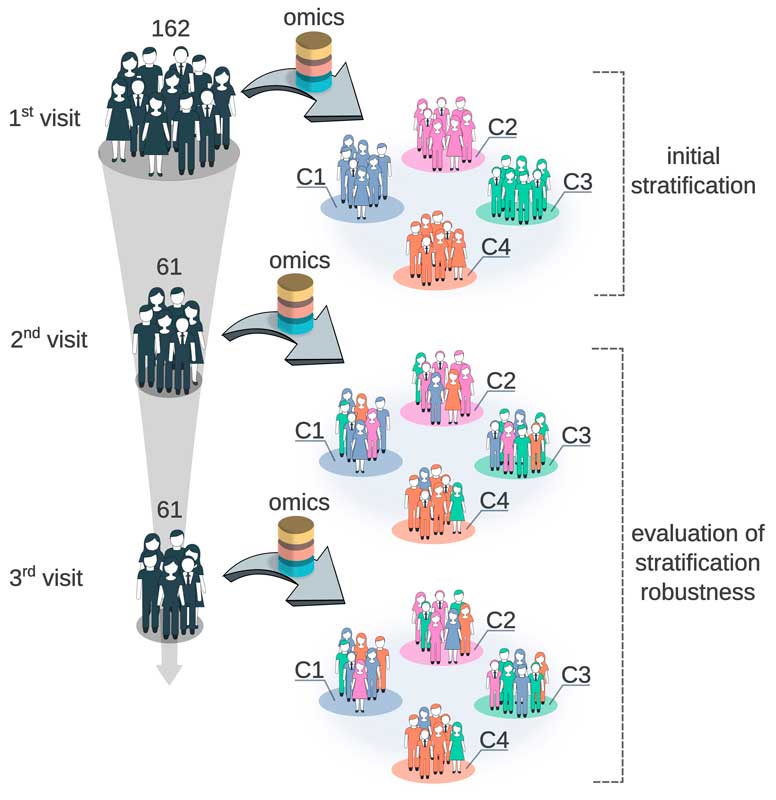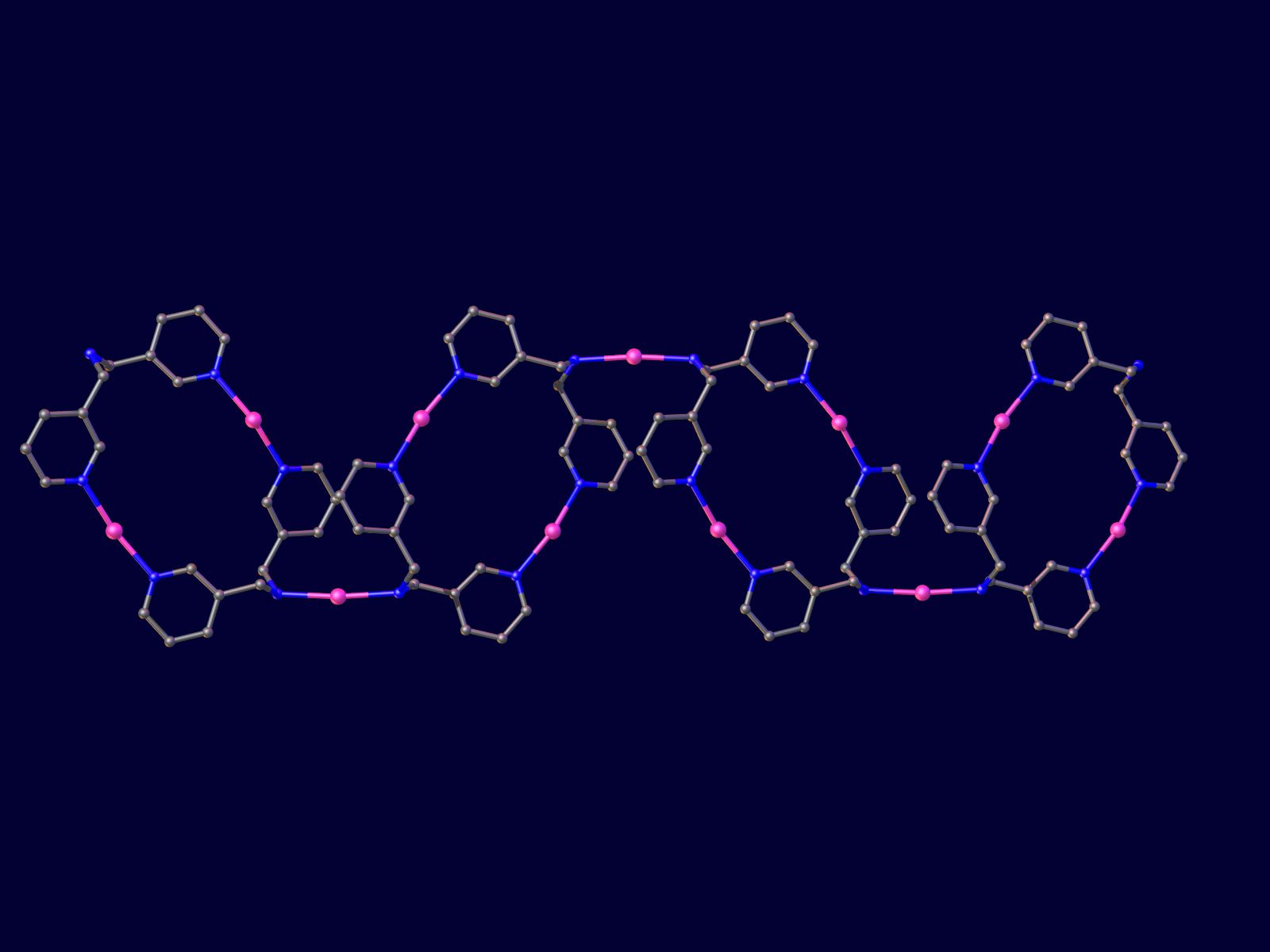CIC bioGUNE leads a study demonstrating that multi-omic data can be used to identify silent and stable risk profiles in healthy individuals

The study, conducted with local cohorts in the Basque Country, shows how the bioinformatic integration of genetic, metabolomic, and lipoproteomic data allows for the early detection of disease development in apparently healthy individuals.
The study, published in npj Genomic Medicine, represents a step forward in the field of precision medicine.
Biological subgroups have been identified among healthy individuals through the integrated analysis of omic data, enabling population stratification and more precise personalisation of preventive interventions.
A multidisciplinary team from the CIC bioGUNE research centre, a member of BRTA, with the participation of researchers from the CIBERehd network, has taken a step forward in the field of precision medicine with the publication of a study demonstrating the value of integrating multiple layers of biological information – genomics, metabolomics and lipoproteomics—to identify individuals who present an underlying molecular risk despite being apparently healthy and without relevant clinical manifestations. The work, recently published in npj Genomic Medicine, is based on the analysis of a cohort of 162 people residing in the Basque Country and represents a milestone in the design of early medical prevention strategies based on a new data paradigm.
The aim of the study was to identify biological subgroups among healthy individuals through the integrated analysis of omic data, which would allow for future stratification of the population and more precise personalisation of preventive interventions. The research identified four distinct biomolecular profiles, one of which, known as cluster C4, is particularly relevant because it presents higher triglyceride levels and lower HDL cholesterol, factors that could indicate a predisposition to dyslipoproteinaemia and, by extension, cardiovascular disease. This profile was also molecularly stable for two years, with no clinical manifestations, suggesting a ‘silent’ risk that could be detected with bioinformatic techniques currently under development.
This pioneering approach demonstrates how multi-omic data-based research not only has the capacity to explain pathological processes, but is also key to comprehensively understanding pre-disease states, thus enabling the design of public health strategies focused on prevention. The analysis was complemented by a two-year longitudinal follow-up of a subset of participants, which confirmed the temporal stability of the identified molecular profiles, an essential element for their practical application in clinical contexts.
“This study demonstrates that it is possible to detect molecular risk signals in a stable manner, even before the onset of disease symptoms. It is particularly interesting that relevant aspects of these profiles are also reflected in parameters observable in routine clinical tests, suggesting potential for future application in preventive medicine,” explains Dr Urko M. Marigorta, principal investigator and Ikerbasque researcher in the Integrative Genomics group at CIC bioGUNE.
In addition to its scientific value, this research has a strong territorial and social component, as it has been carried out on a local cohort, contributing to the biomedical knowledge of the Basque population and reinforcing the role of the Basque Country as a benchmark in bioscience research. The approach used highlights how the medicine of the future relies on complex data, integrated computational analysis and temporal monitoring of individuals, in order to anticipate disease rather than react to it once it has manifested itself.
“It is essential to carry out this type of study with the local population, because precision medicine algorithms have to be validated in the context of each country. Furthermore, in the Basque Country we have a responsibility to develop our own expertise in this area so that we can consider incorporating these new methodologies into our society,” adds Dr Dimitrios Kioroglou, first author of the study and postdoctoral researcher in the Integrative Genomics group at CIC bioGUNE.
This work reinforces CIC bioGUNE’s commitment to research aimed at the well-being of society and to the development of innovative solutions that respond to current and future health challenges, within a paradigm in which prevention and personalisation of medicine are at the centre of scientific action.




